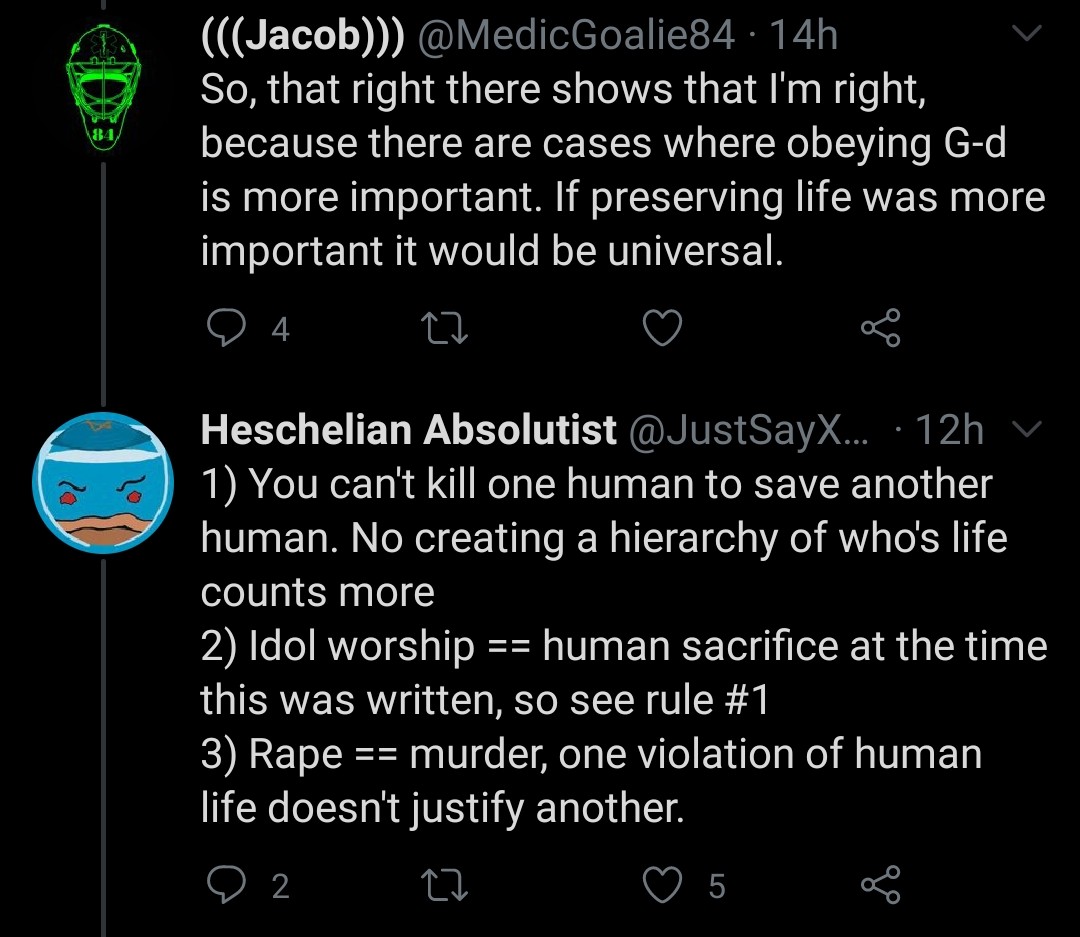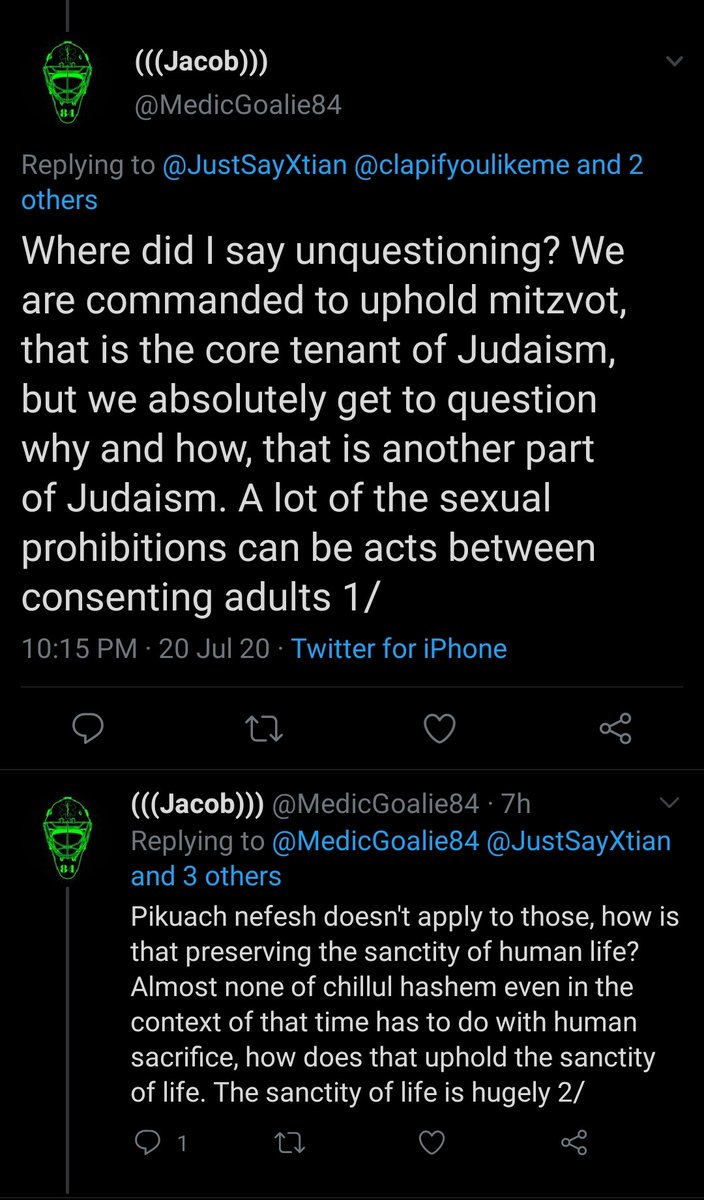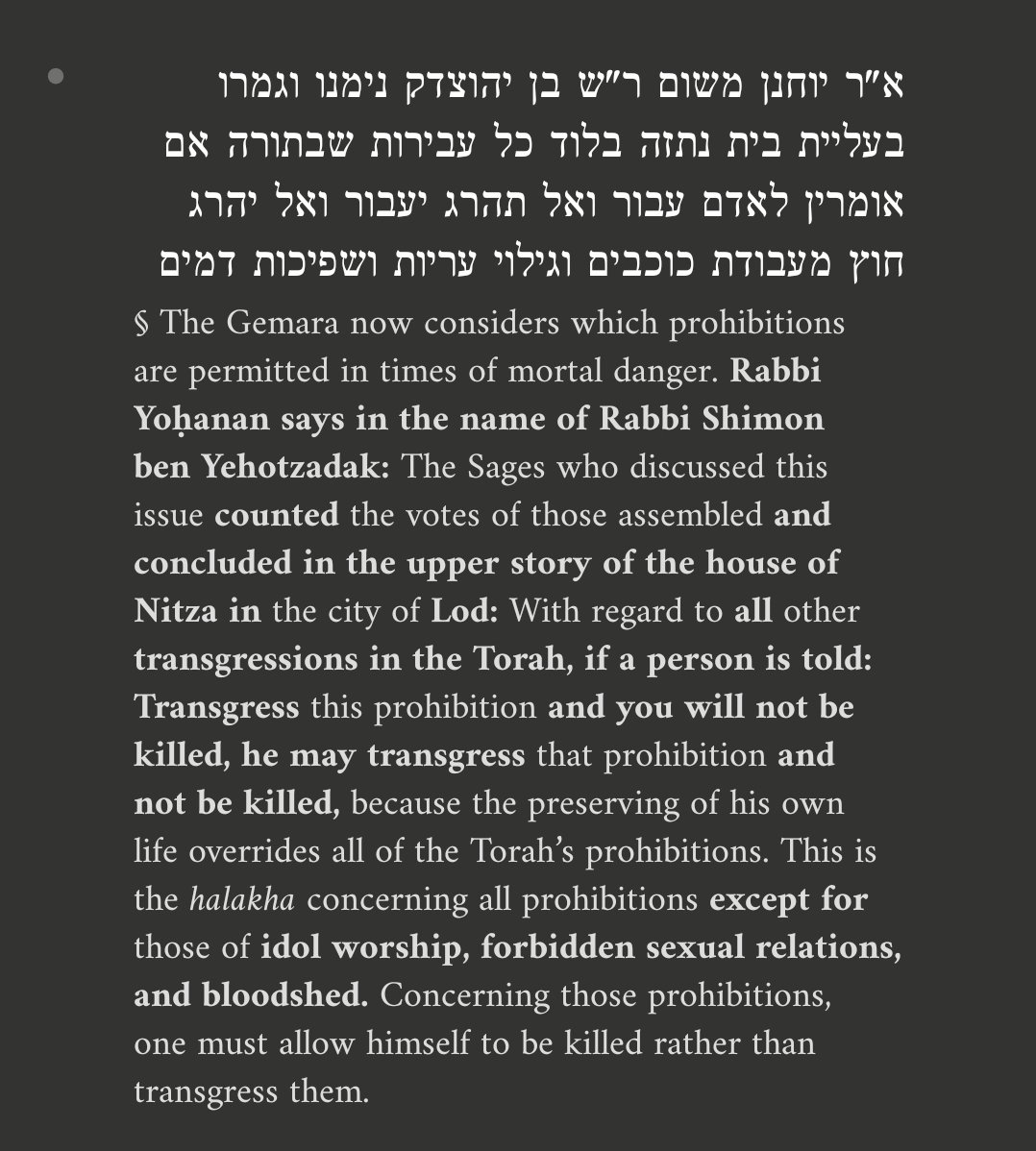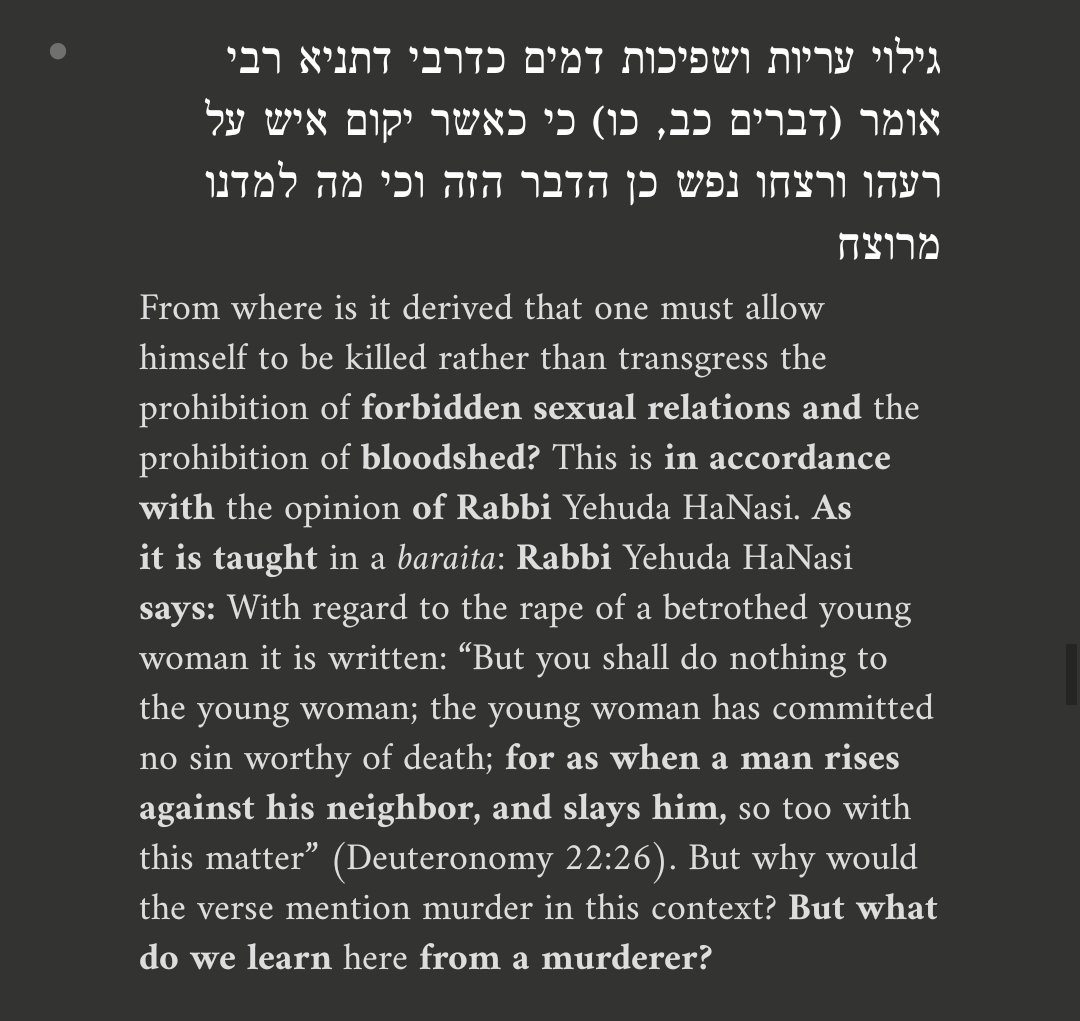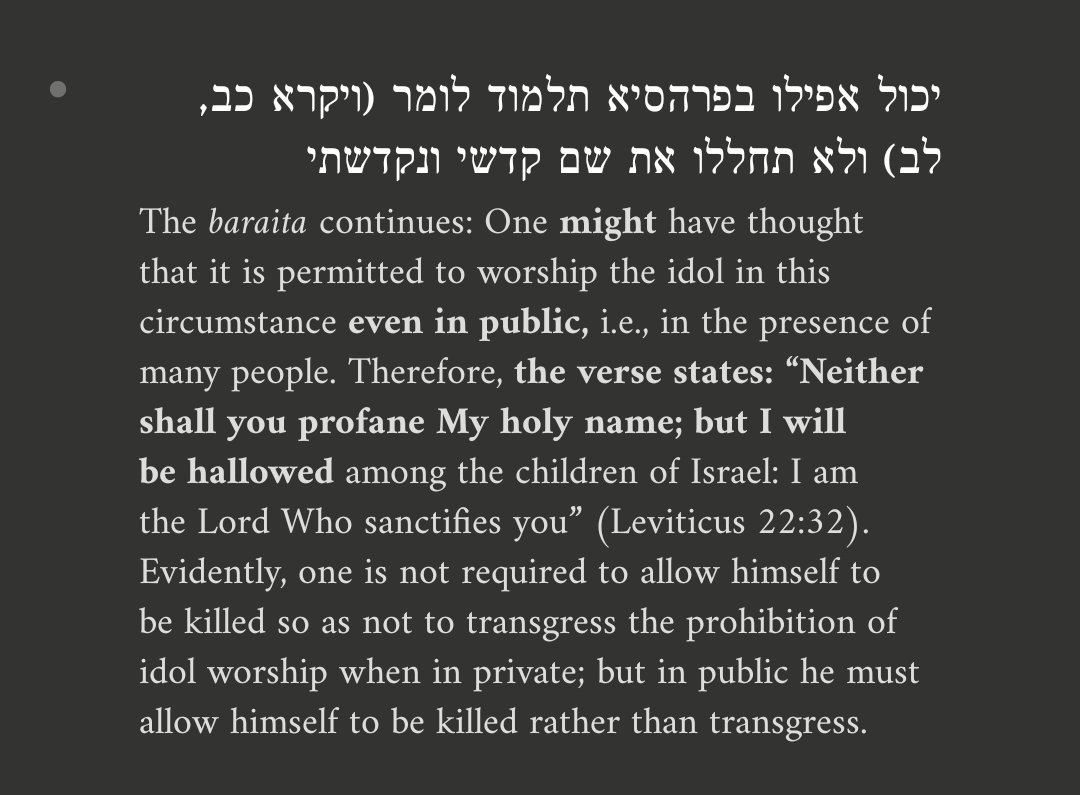Okay, so let's dig into this. What are the exceptions to the Jewish principle that you can break commandments to save a life, and why?
We're looking primarily to Sanhedrin 74a-b, which is where the Sanhedrin takes a vote and determines that the three exceptions to pikuach nefesh are idol worship, forbidden sexual relations and bloodshed (i.e., murder).
I'm going to take these in reverse order, from simplest to most complex. Why can't you murder someone to save a life? I was just paraphrasing the Talmud directly on this one - the sages say it's not up to us to decide who's life is most worth saving.
Why can't you engage in forbidden sexual relations to save a life? My interlocutor up there is correct that "forbidden sexual relations" is a whole category. Most of them inherently involve an unequal power dynamic, but some could be between consenting adults.
But how likely are those to come up in the case of saving a life? Is it likely that someone is going to say "hey, go have mutually consensual sex with someone or I'm going to kill this guy"? Is that what the sages are considering here?
No, it is not.
No, it is not.
They are, in fact, specifically justifying the exclusion to pikuach nefesh in cases of rape, and they are specifically paralleling rape to murder.
What about idol worship? Okay, my interlocutor has a point, I'm glossing pretty hard on this one (though I maintain that the adamance against idol worship in the Torah is motivated by human sacrifice and I may thread on that another time).
The exception for idol worship is, indeed, based on the idea that we should love God extremely much. BUT. There are a lot of caveats to this prohibition. It's okay to do something idol worship-y to save your life if it's in private.
What counts as "in public"? You need a minyan. If there aren't ten Jews around, you can worship the idol to save a life. Also, if you are passively engaging in idol worship instead of actively it's okay. Also if it's not intended to persecute the Jews, go save that life.
How has this been interpreted in practice? Maimonides' first major wiring was the Letter on Apostasy. Some other rabbis had been saying that Jews who were forcibly converted to Islam should have died instead, and could never come back to being Jews. They were liable for death.
Maimonides was furious about it, and tore them apart. He argued that in the Torah God repeatedly forgives us for idol worship - should we dishonor God by being less forgiving?
Furthermore, if these forced converts accepted conversion on the surface to save their lives but continued to practice Judaism in private to the best of their ability, isn't that passive, and not active, idol worship, and ergo allowable to save a life?
In other words, the exception to pikuach nefesh only applies if a person is rejecting God with all their heart and all their soul and all their might. Participating in an act of persecution of the Jewish people. Engaging in cultural genocide.
I don't know the names of the rabbis Maimonides was speaking in opposition to, but everyone remembers the Rambam. SO. In conclusion.
I maintain that the three exceptions to pikuach nefesh exist because they are instances of violating another human being's right to life and freedom. We're allowed to disrespect or disobey God to save a life. We're not allowed to violate the fundamental rights of other humans.

 Read on Twitter
Read on Twitter